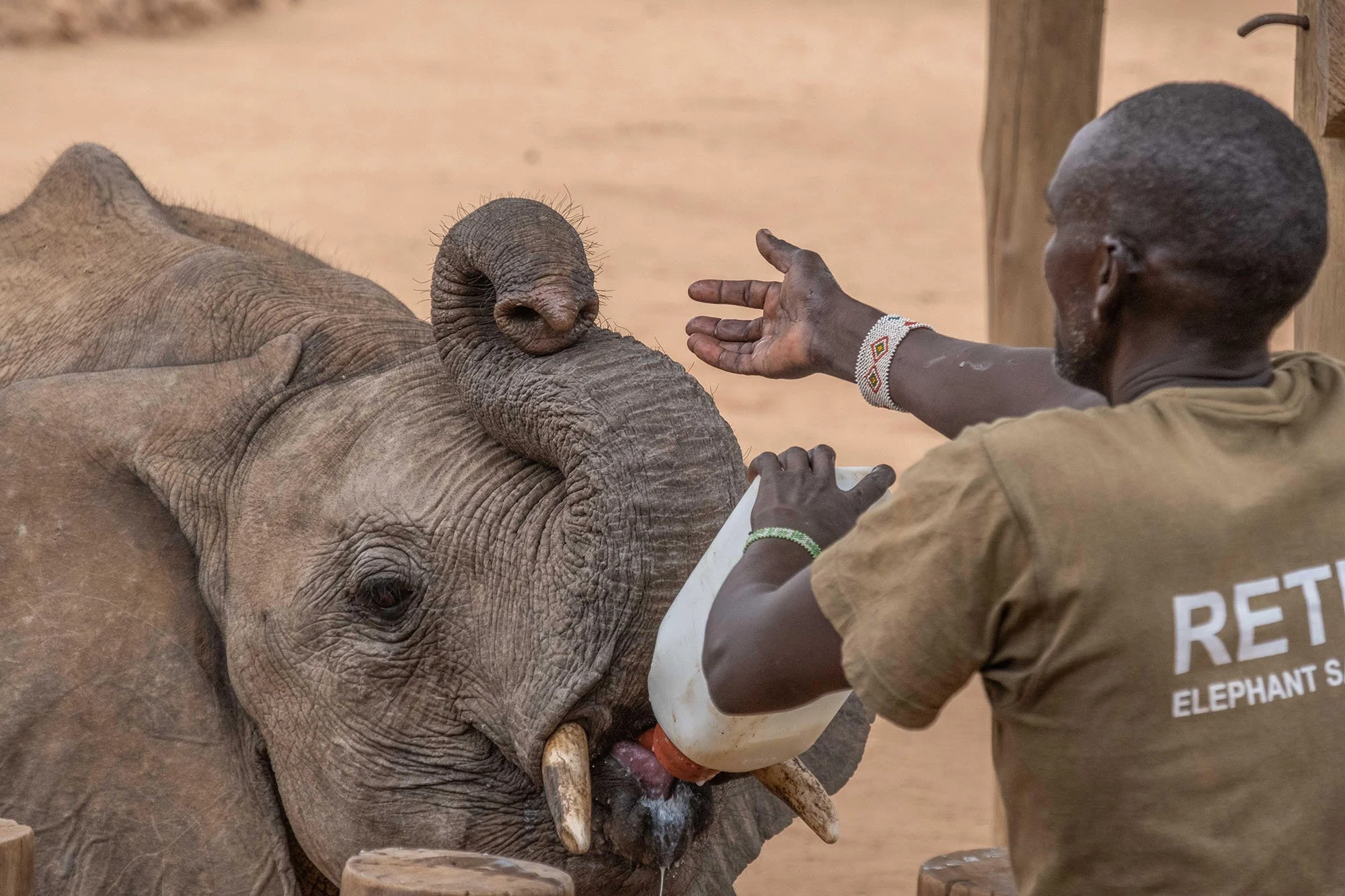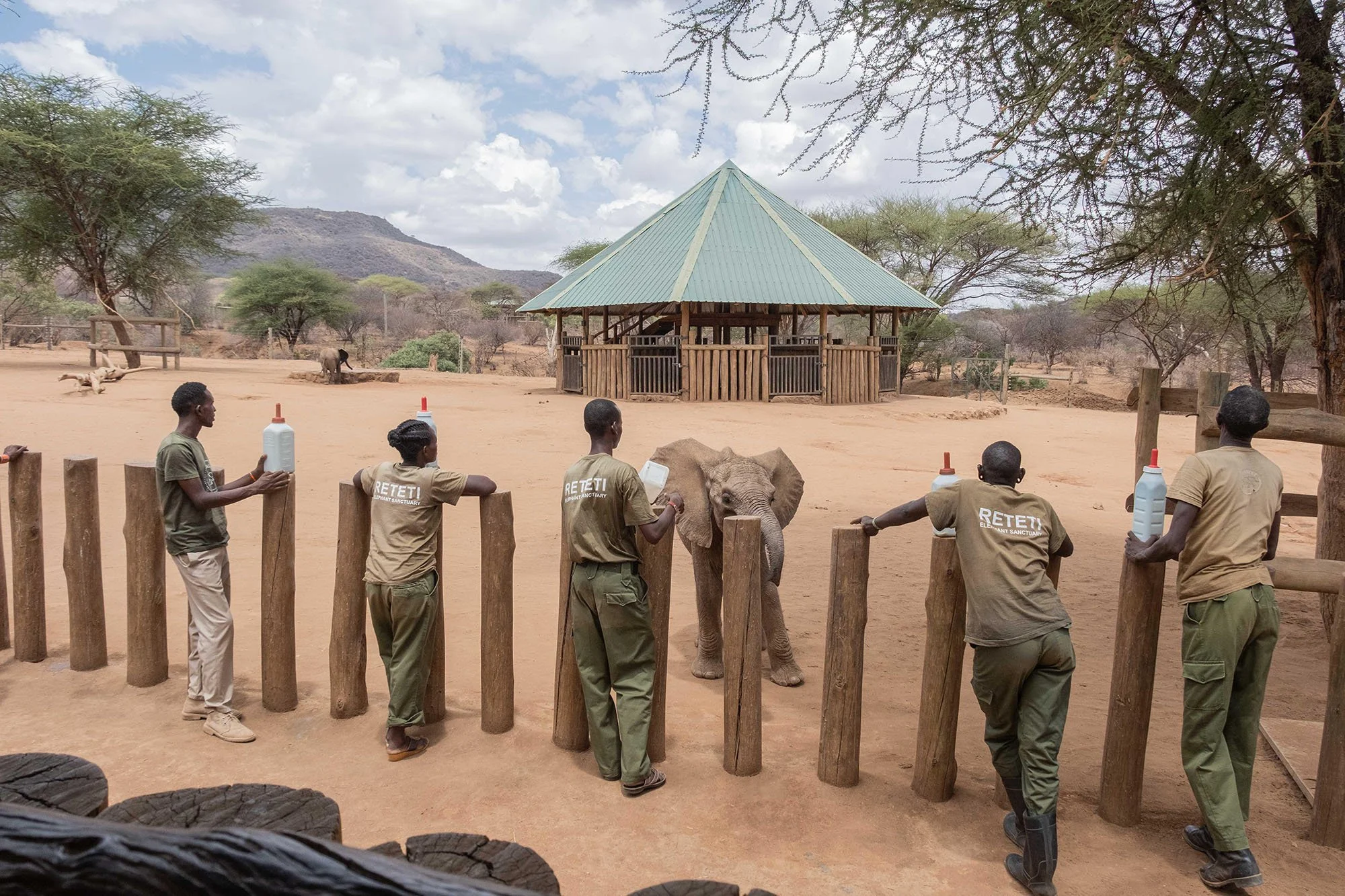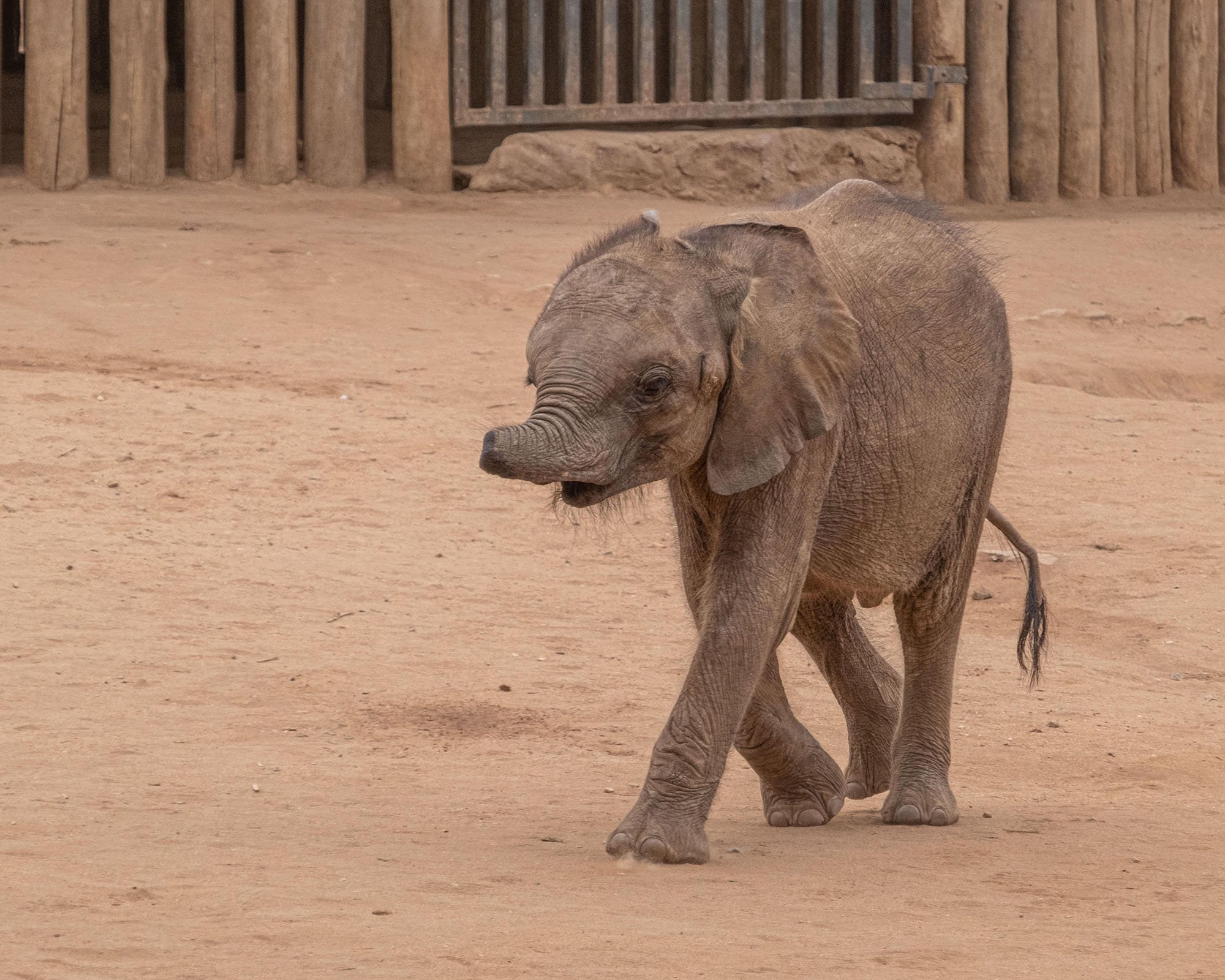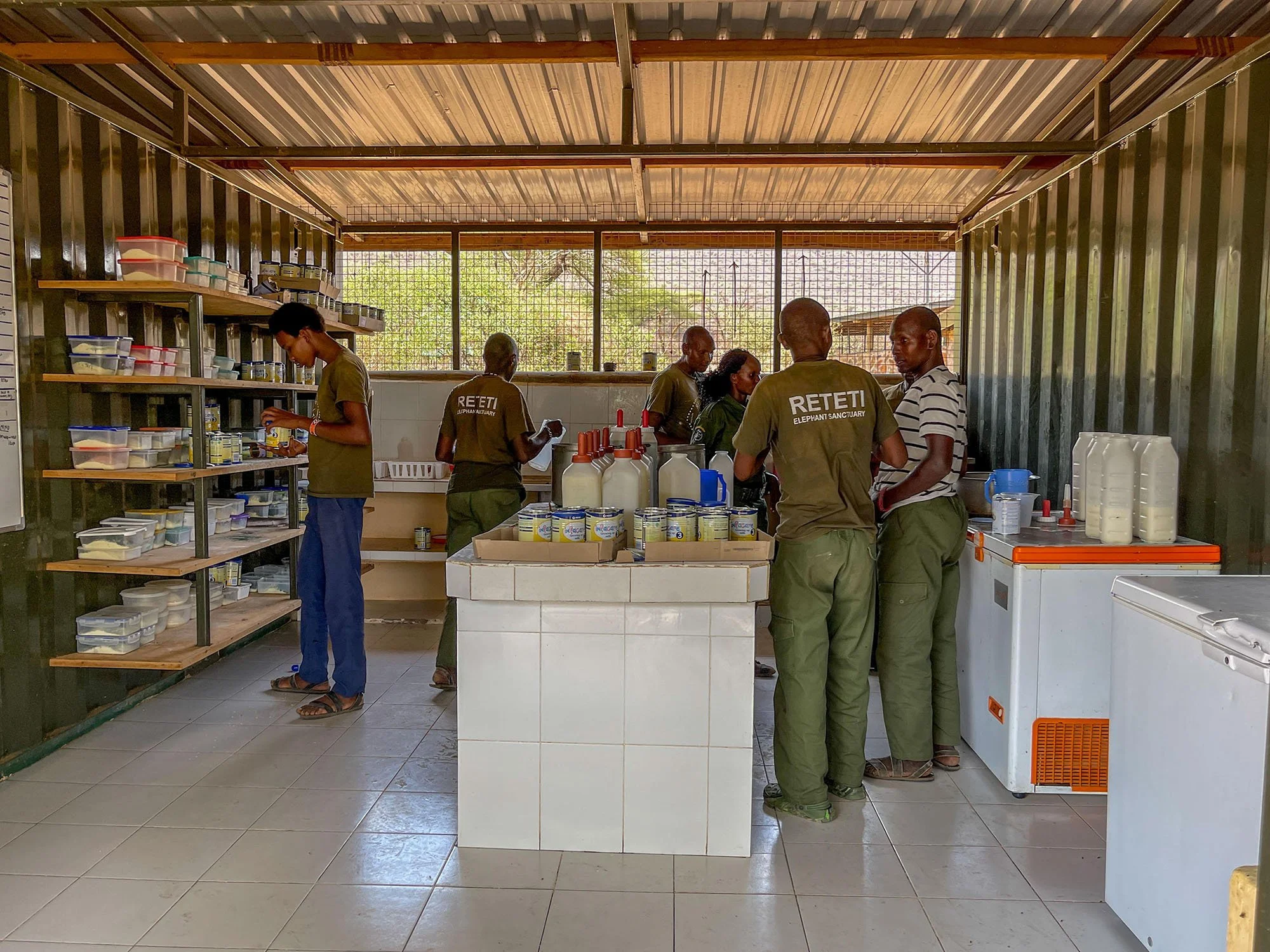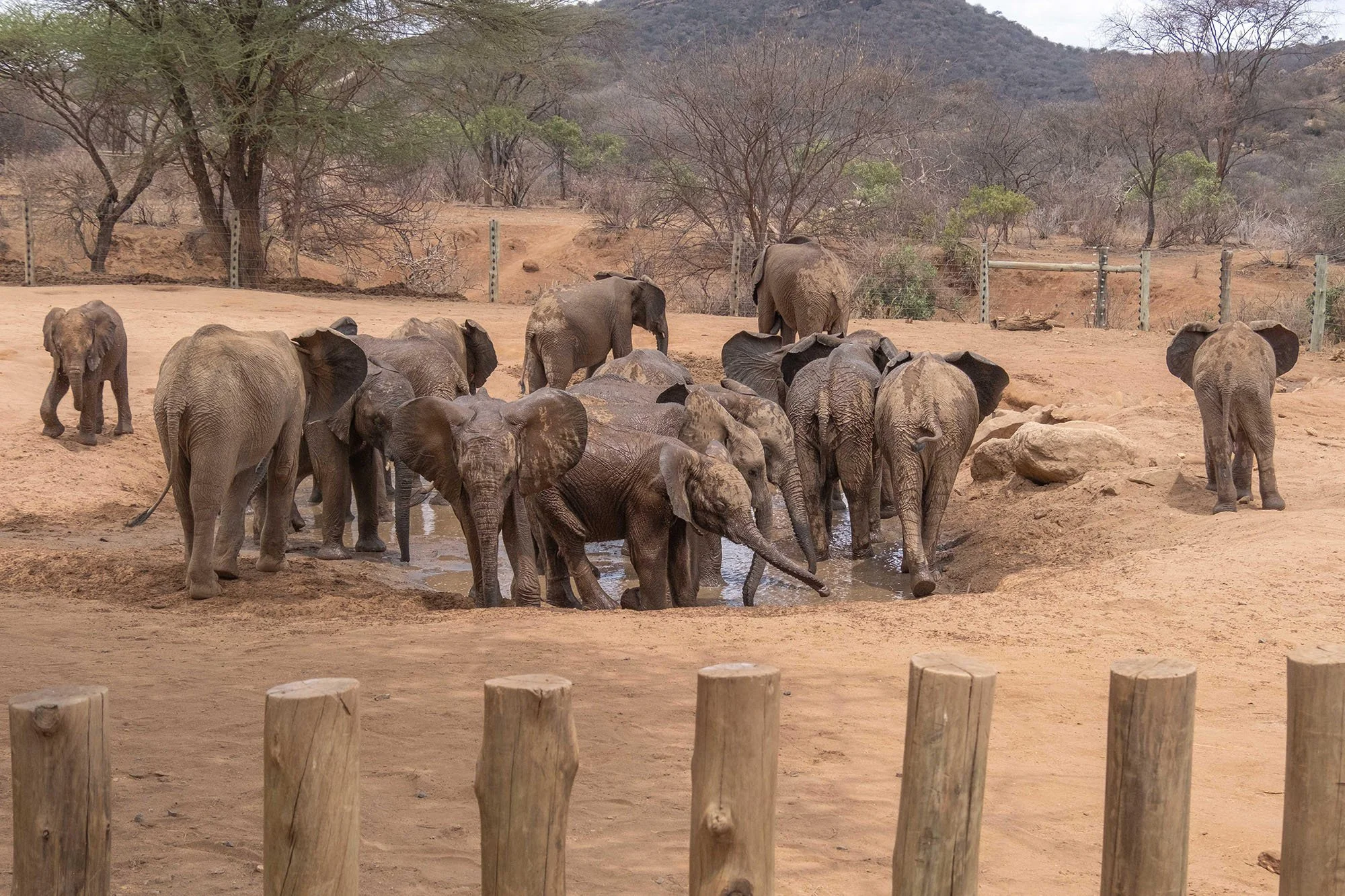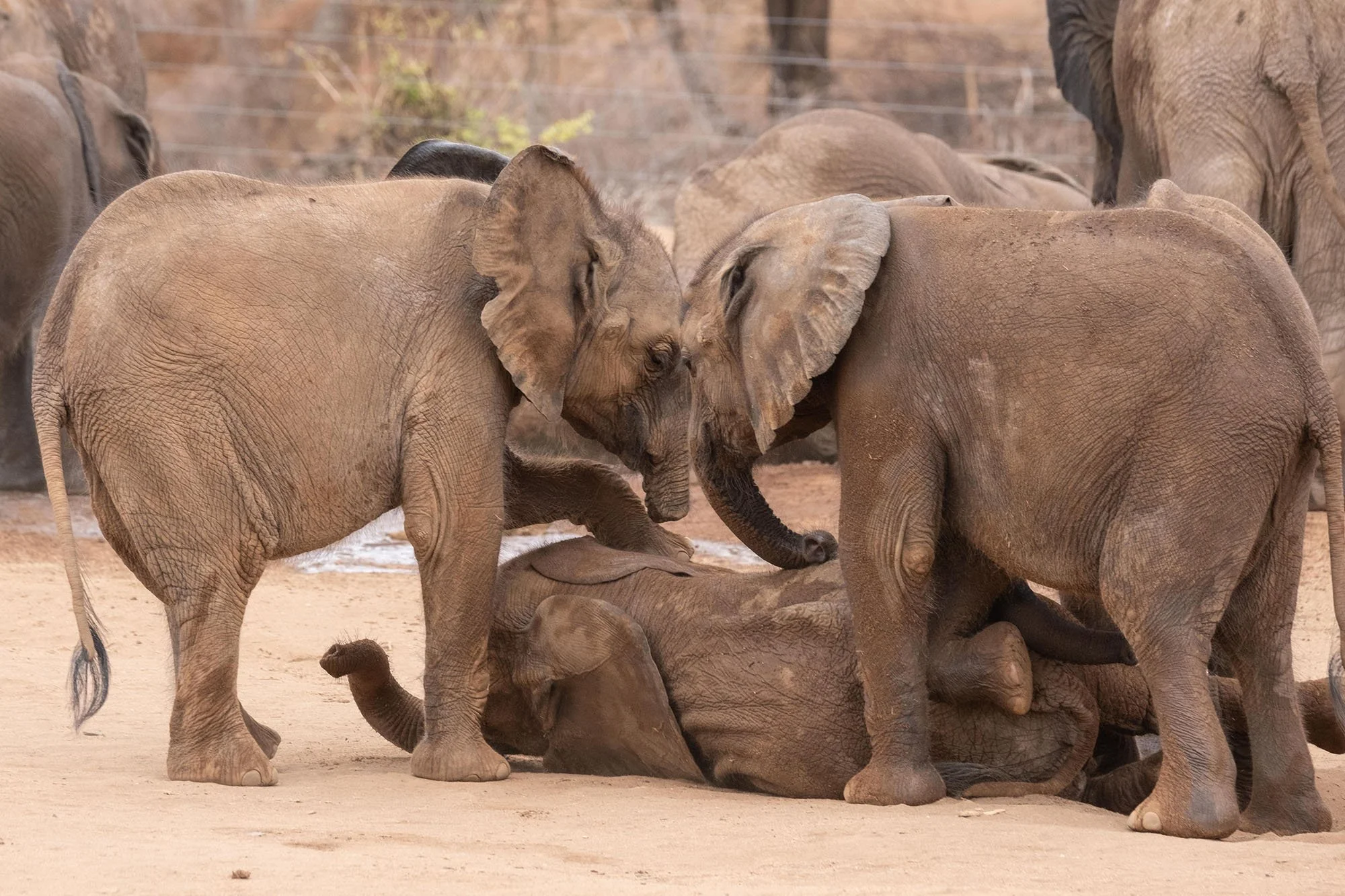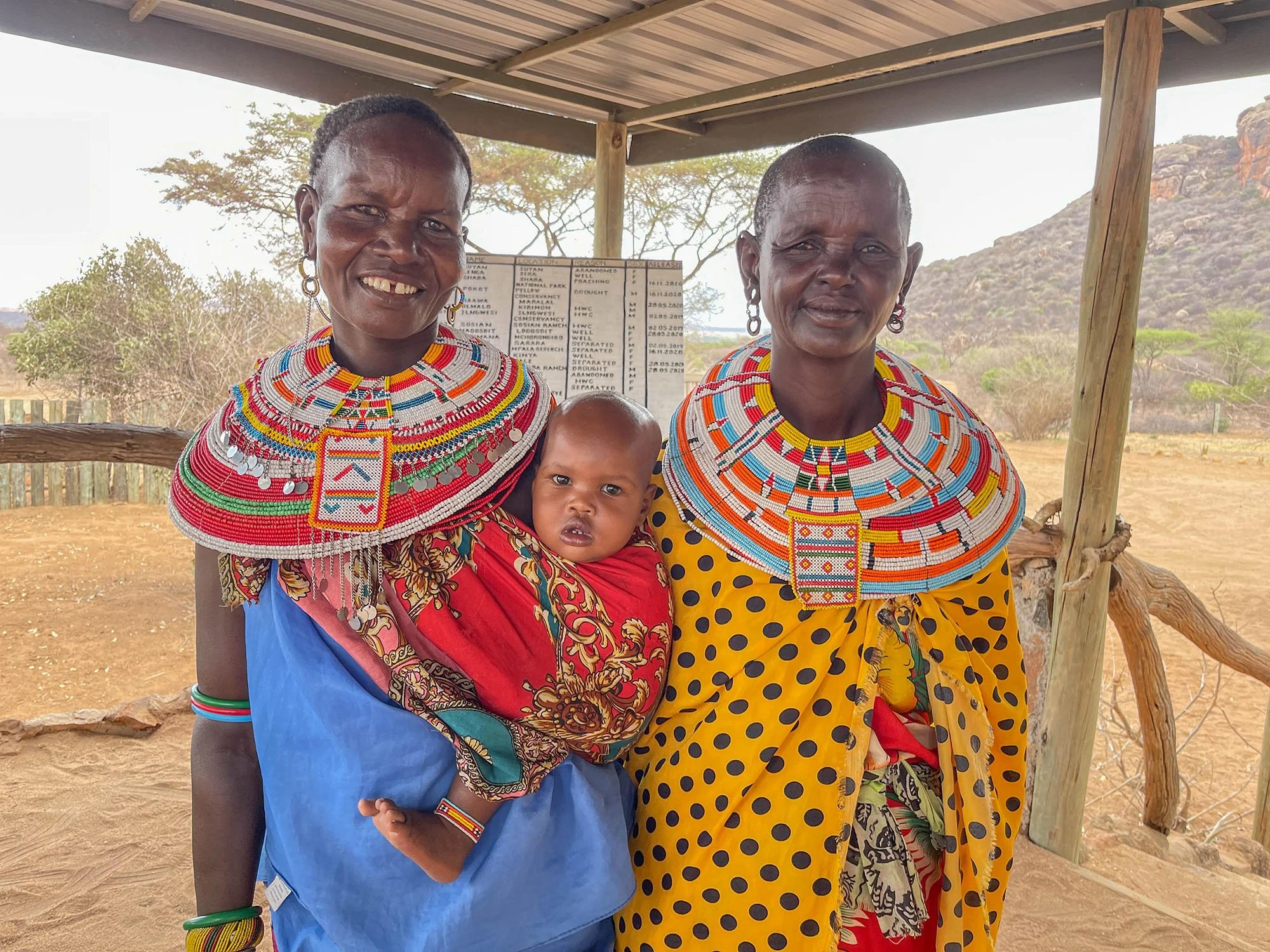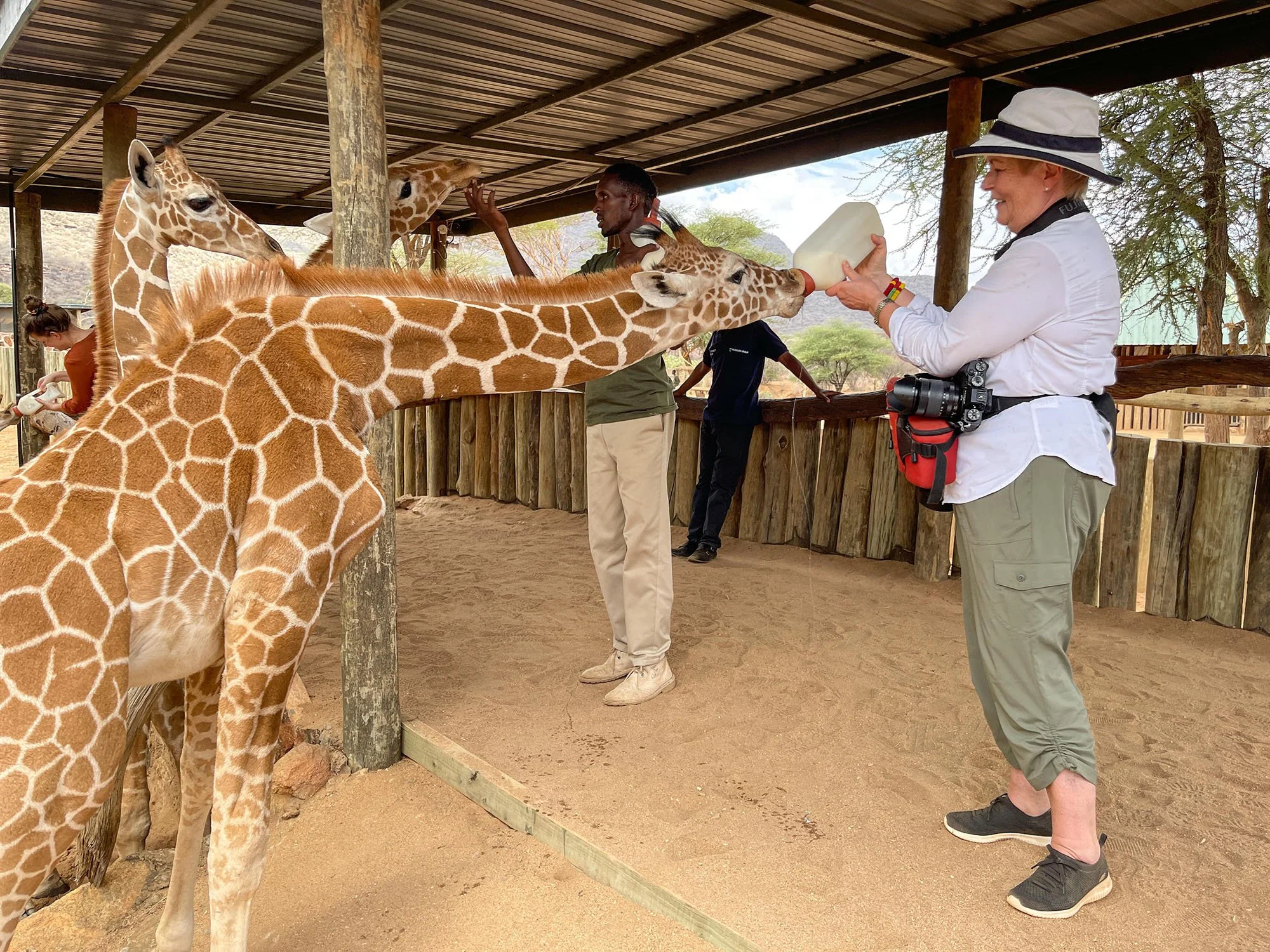Save Nature – Save Ourselves
The orphaned elephants that are cared for by the Samburu at Reteti Elephant Orphanage, are symbols of a new wave of thinking about wildlife and the environment. It goes far beyond traditional conservation methods, and dives deeper into the core value of what nature represents.
The gates opened for the next feeding at the Reteti Elephant Sanctuary, but the orphans were nowhere in sight. The region is experiencing a devastating drought, the keepers and their young charges were forced to walk further out into the bush to find enough to eat. Below the viewing stand a group of keepers waited patiently with large bottles of milk. Finally, the first group of orphans arrived. They raced across the compound for their bottles.
The first time I visited Reteti in 2018 there were seven or eight orphans in care. Now there are over thirty. In the past few months alone, several new orphans have been rescued. They are victims of the drought, tragically abandoned when they fell into local wells at night. Little Long’uro lost most of his trunk to hyenas as he struggled to stay alive in a cold wet well in the dark. His odds of survival were slim. Thanks to the devoted care of the Reteti staff, and his determined character, he is thriving and learning to adapt with a short trunk.
The latest rescue in the ICU area of the compound was a calf less than two weeks old. The baby lovingly caressed keeper Mary Lengees as she fed it a bottle of formulated milk. The love between the animals and their caregivers is evident in every gesture.
“The elephants are helping to empower the women at Reteti. Women are transforming how they relate to the wild and the connections the next generation has with nature. It’s a reciprocal relationship, they are all helping and teaching each other.” —Ami Vitale
It’s not easy raising an elephant. It takes experience, specific nutritional knowledge and around the clock care. The milk preparation area of the sanctuary develops individual formulas for each orphan. Pauline, the head nutritionist, impressed me with her knowledge. She knew how to supplement each orphan’s diet to combat life threatening issues like malnutrition, diarrhea, or infection.
Once the babies gulped down their bottles, they raced to the waterhole in the centre of the compound to drink and roll in the mud. Elephants cover themselves in mud to protect their skin from the hot sun and biting insects.
Each of these elephants has a tragic story of loss. It was heartwarming to see the youngsters play and show each other affection. These are positive signs of healing and resilience. This bodes well for the orphans successful release back into the wild in the future.
Playfulness is a sure sign of good mental health.
The children I met at Sarara’s Mobile Montessori school are part of this community’s dream of a sustainable future. Elephants and education are aspects of a solution that is “reversing the trends and securing their wilderness landscapes, returning to a learned age-old history of wildlife tolerance and co-existence.”
The Samburu of Northern Kenya have a lot to teach us about managing resources during difficult times and living in harmony with nature. Reteti is not only about saving elephants. There were other recent orphan rescues at the sanctuary including a baby kudu and four hungry reticulated giraffe calves.
The giraffes were so eager for a bottle they climbed up to the viewing platform while I was observing the elephants. It was wonderful to be so close to these beautiful animals.
Many thanks to those who donated last week to support the Sarara Foundation Mobile Montessori School. Donations to the foundation support both education and wildlife rescue operations. These projects are connected – helping people helps wildlife - helping wildlife helps people.

